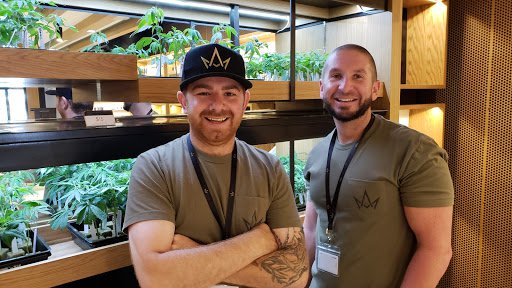New California Cannabis Testing Standards Supported by Retailers Like March and Ash

San Diego, CA.- The quality of the product sold at cannabis shops is obviously critical for success. So anytime there are questions about potency and product value, important questions need to be asked.
A recent Associated Press report stated nearly 20 percent of cannabis products in California failed tests for potency and purity since the state started requiring the checks on July 1.
The testing has been especially tough on cannabis-infused cookies, candies and tinctures: Since the study, about one-third have been blocked from store shelves.
PharmLabs in the Midway District is a licensed, accredited cannabis lab in San Diego.
Melissa Nutter, the lab director, said the 18% test failure is not surprising. “Testing methodologies are not standard, so if a manufacturer does research and development of a product at one lab and then goes to another lab to test for legal compliance, the results may differ,” Nutter said.
Some in the industry say that has more to do with unrealistic standards and technical glitches than protecting consumer safety.
New Cannabis Store Supports Strict Standards

March and Ash
March and Ash just launched its first upscale boutique in Mission Valley just east of Texas Street.
Its owner, Blake Marchand, has been a strong proponent of stricter testing standards.

March and Ash Cannabis Concierge
March and Ash was featured in this story on KUSI supporting the states strict testing regulations. CEO Blake Marchand told me, "I don't think the state testing standards are too stringent, we actually support it, we want to have a product that we're confident behind and feel comfortable when our customers leave the shop."

Jon Saco and Blake Marchand, March and Ash Owners
Testing Continues
While March and Ash and other dispensaries work to build their business, the state continues to scrutinize the product on the shelves, making sure the public is being protected.
A statement from the California Department of Public Health read it had not received any verified reports of illness resulting from consumption of a cannabis product attributed to mold or bacteria, although three complaints were submitted anonymously.
The debate over testing isn't just about lab procedures or allowable levels of pesticides. It all comes with a cost, and for some companies providing the product, they say it’s straining their budgets. "Testing is currently costly, slow, and inconsistent," the growers association told the state in a recent letter.




